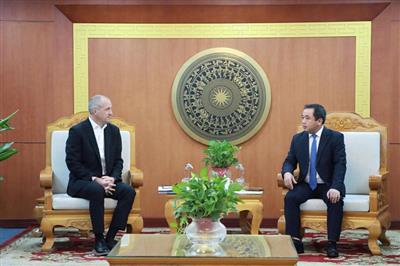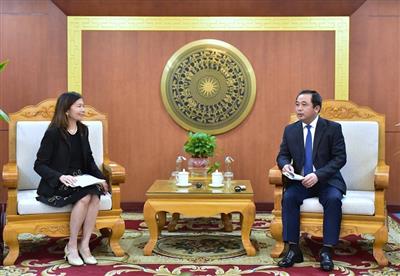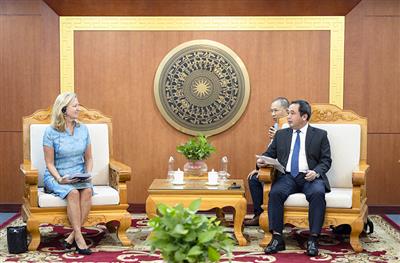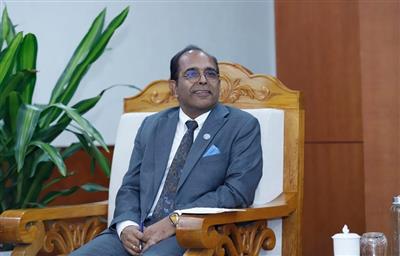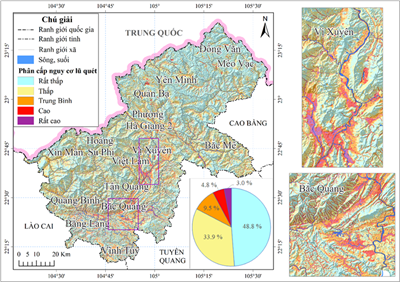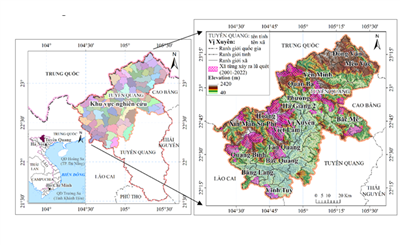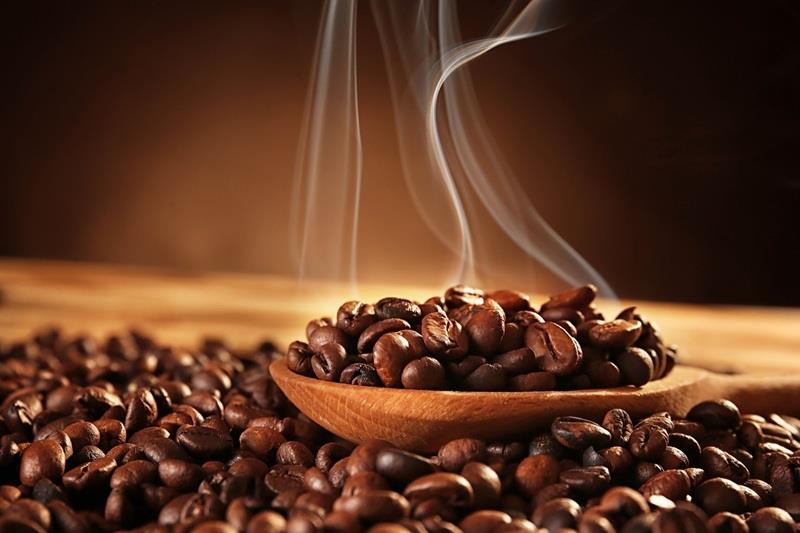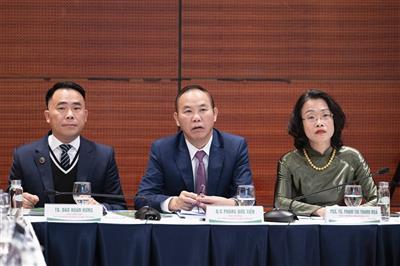
Towards a sustainable Vietnam-U.S agri-food supply chain: New strategic commitments
04/06/2025TN&MTMinister Do Duc Duy’s mission to the United States opens a new chapter in bilateral cooperation, focused on boosting agricultural trade and building resilient, sustainable supply chains.
Strategic partnership with complementary strengths
On June 2 (U.S. time), Minister of Agriculture and Environment Do Duc Duy led a Vietnamese delegation of nearly 50 representatives from government agencies, businesses, and agricultural associations to the state of Iowa—a powerhouse of American agricultural production. The visit served not only as a trade promotion effort but also as a demonstration of Vietnam’s strong commitment to deepening the Comprehensive Strategic Partnership between the two countries. At the core of this commitment is the aim to foster a balanced and sustainable bilateral agri-food supply chain.
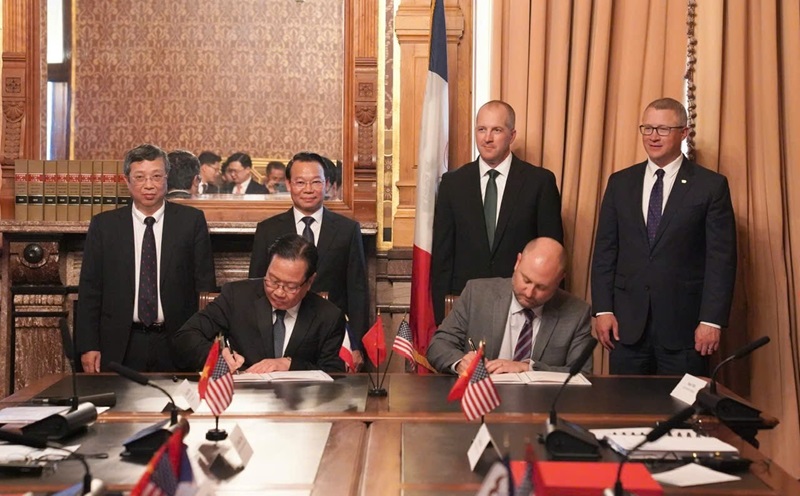
Leaders of Vietnam’s Ministry of Agriculture and Environment and the Iowa Department of Agriculture witness the signing of a Memorandum of Understanding on trade cooperation in agriculture, forestry, and fisheries. (Photo: Negotiation Delegation)
In a meeting with the Iowa Department of Agriculture, Minister Do Duc Duy emphasized that Vietnam and the United States are both agricultural powerhouses with complementary strengths and no direct competition. He noted that closer collaboration would help enhance each country's competitiveness while delivering practical benefits to producers and consumers alike.
Iowa, the corn belt of America, produces around 50 million tons of grain annually and excels in grains, meat products, and high-tech agriculture. Vietnam, on the other hand, has increasingly established its position on the global agricultural map with leading exports such as tropical fruits, seafood, timber, and spices. “We are constantly expanding our processing capacity, improving quality control, and promoting sustainable agriculture,” Minister Do Duc Duy affirmed. “Our two countries can absolutely complement each other to build a stable, long-term agri-forestry-fishery value chain.”
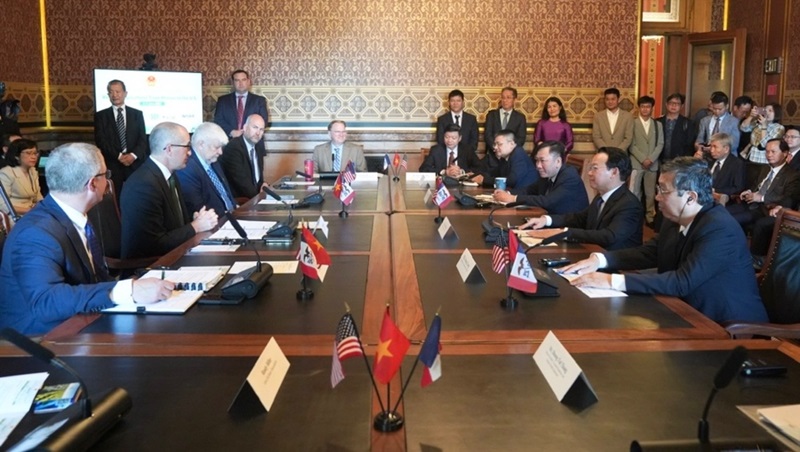
The working visit to the United States by Vietnam’s Ministry of Agriculture and Environment reflects the country’s commitment to strengthening strategic trust within the bilateral agri-forestry-fishery supply chain—further nurturing the Comprehensive Strategic Partnership on the 30th anniversary of diplomatic relations. (Photo: Negotiation Delegation)
An increasing number of Vietnamese companies are now importing agricultural inputs and equipment from the United States—ranging from corn byproducts, soybeans, meat, dairy, timber, to livestock breeds. This growing two-way trade helps balance the trade relationship while contributing to global food security.
A $800 million boost and long-term commitments
A highlight of the visit was the signing of five Memoranda of Understanding (MoUs) between Vietnamese enterprises and partners in Iowa, totaling up to $800 million over the next three years. This figure marks a significant leap from Iowa’s previous average annual agri-export value to Vietnam of $44 million. Beyond their commercial value, these agreements signal strong long-term strategic commitments from both sides.
Specifically, Khai Anh Binh Thuan Company agreed to import 1 million tons of soybean meal from Ag Processing Inc. (AGP), worth an estimated $380–390 million, as well as 900,000 tons of corn and wheat from United Grain, valued at around $250 million. Meanwhile, Viet Nhat Nutrition Technology JSC signed a contract with POET Group to import 100,000 tons of DDGS and 100,000 tons of soybean meal, worth approximately $60–70 million.
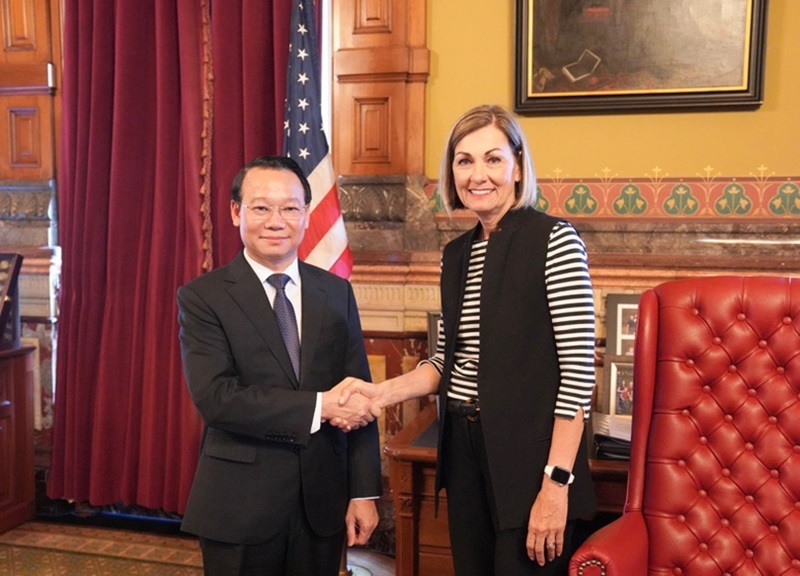
Governor Kim Reynolds of Iowa receives Minister Do Duc Duy (Photo: Negotiation Delegation)
Beyond trade deals, public–private cooperation also deepened with the signing of an MoU between the Department of Livestock Production and Animal Health, under Vietnam’s Ministry of Agriculture and Environment, and the Iowa Pork Producers Association. The two sides committed to organizing technical workshops, promotional programs, and business networking events to foster deeper connections between livestock producers and food processing enterprises.
The mission also paved the way for future cooperation in information exchange, experience sharing, and technology transfer—laying a strong foundation for Vietnam’s transition toward a greener, smarter, and more sustainable agricultural sector.
With partnerships expanding across both governmental and business levels, Minister Do Duc Duy’s visit to the United States delivered not only impressive numbers but also strategic momentum for a new phase in Vietnam–U.S. agricultural relations. From the fields of Iowa, the vision of a resilient, efficient, and mutually beneficial supply chain between the two countries is becoming a tangible reality.
Minh Thao


